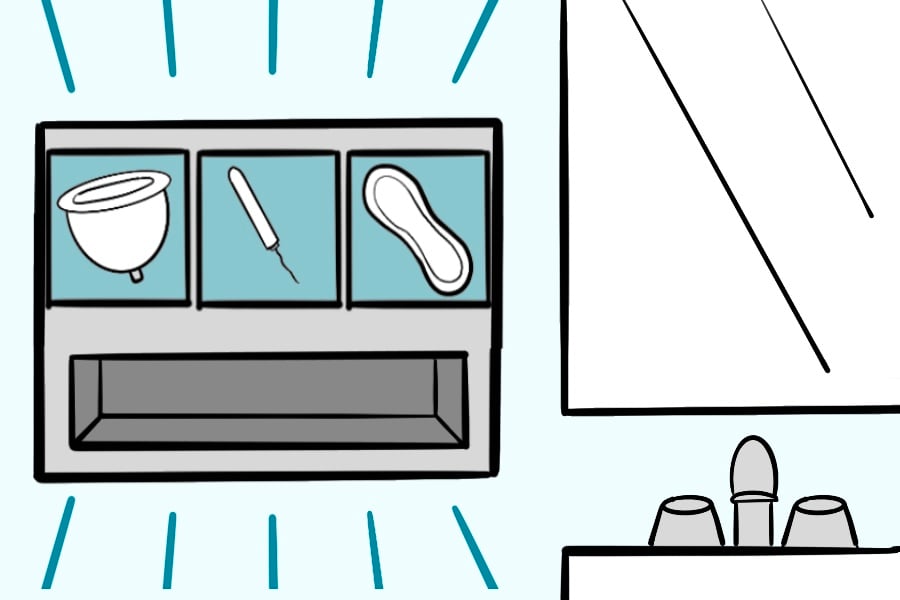MEA campaigns for free menstrual products in dorm bathrooms
NU’s Menstrual Equity Activists are leading a campaign to provide free menstrual products in all dorm bathrooms.
March 2, 2022
Northwestern’s Menstrual Equity Activists are leading a campaign to provide free menstrual products in all residence hall bathrooms in an effort to combat period poverty.
Founded in 2020 and rebranded in 2021, MEA raises awareness of the barriers experienced by menstruators through donation drives and teach-ins at the grassroots level.
Weinberg senior Rwan Ibrahim, MEA’s advocacy director, said period poverty is “the inadequate access to menstrual hygiene products, education and tools for menstruation.” She said the inspiration for the campaign came after menstrual products were made available in campus buildings in 2017.
“You see in Norris, Tech, Kresge, a lot of the public bathrooms on campus, there are menstrual products,” Ibrahim said. “However, there are no menstrual products in dorms, and we were questioning why there aren’t free menstrual products there if NU is already providing free menstrual products in other buildings and dorms are a home for a lot of people.”
Weinberg sophomore and MEA co-President Irene Quan said she was looking for a club centered around women’s health and empowerment when she joined MEA her freshman year.
She said the passion she saw in the mission and members of MEA made her want to stay.
“The fact that we could all build initiatives and build projects from the ground up was really, really special to me,” Quan said.
As co-president, Quan has worked on a number of projects, including product donations and a collaboration with CampusCup, to promote sustainable options in menstrual products.
Quan said the organization’s latest initiative to make period products available in residence hall bathrooms was inspired by discussions among MEA members about the financial barrier some people experience in purchasing period products.
“If there is this need and it can be addressed by the school, they should do it, because at the end of the day, menstrual products should be as normalized as toilet paper,” Quan said.
After expressing an interest in pursuing this project with MEA, Ibrahim reached out to Associated Student Government’s Health and Wellness Committee for guidance on next steps. They told her to gather perspectives from students to show the University there is an interest and need for this service.
Ibrahim created a survey in January to gauge students’ interest in having menstrual products in residence halls. The survey has received more than 600 responses, she said.
“A survey is really important because there’s really power in numbers. We want to see if students are actually in need of these and would be interested in having free menstrual products,” Ibrahim said.
Weinberg sophomore Anni Wickman recently joined MEA and is part of the advocacy committee. She said her committee has been focused on spreading the word about the campaign.
“I’ve been working on putting up flyers in my dorm and sharing the survey on social media,” Wickman said.
Ibrahim said the wide range of responses, from menstruators to non-menstruators, proves this initiative is one that benefits all students.
That, at its core, is the goal of MEA, Weinberg sophomore and MEA co-President Rhea Sharma said.
“If someone … tells me, ‘We learned something about period equity,’ that would make my day,” Shah said. “Specifically with this project that Rwan is leading, I hope that one, it’ll change people’s lives and now they have free access to menstrual products, but two, I just want it to be a more normalized issue.”
Email: samabenamer2025@u.northwestern.edu
Related Stories:
— Menstrual Equity Activists to distribute free menstrual cups on-campus
— Experts discuss the problematic assumptions behind solutions to menstrual inequity in India



